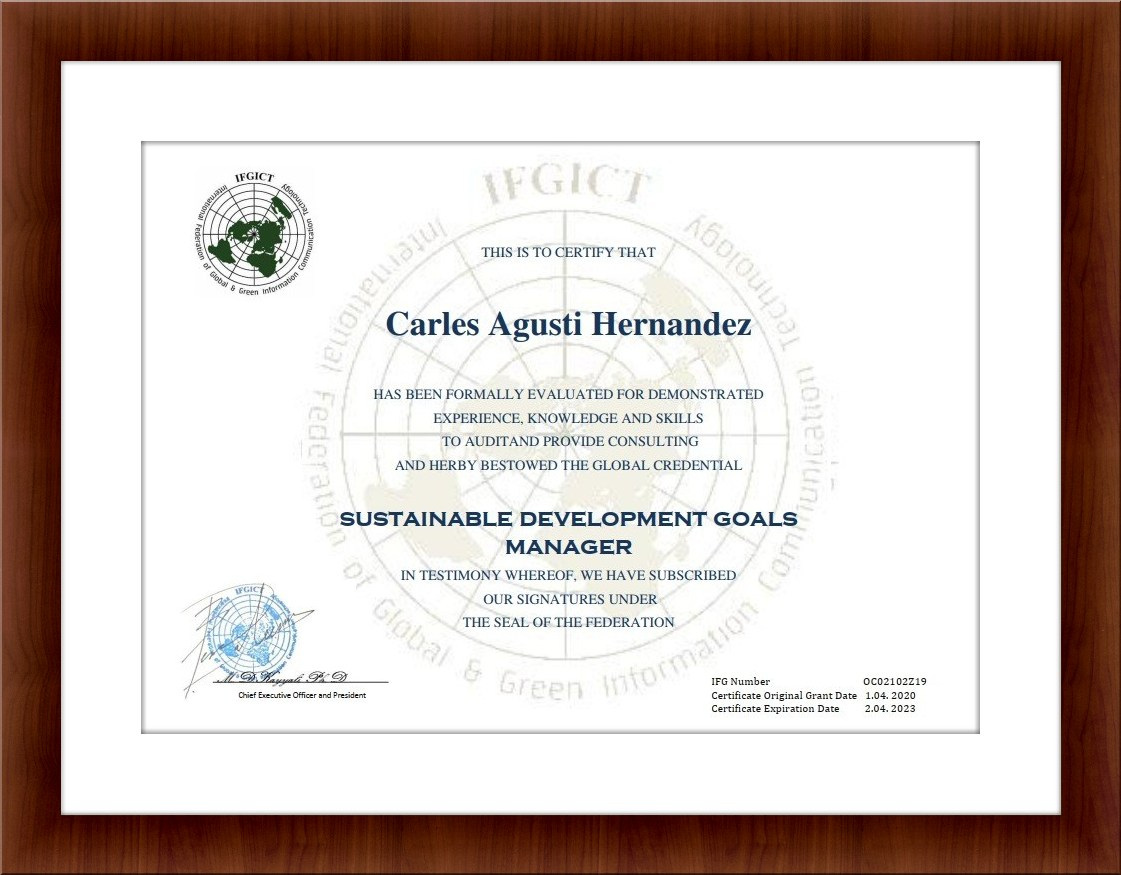
SUSTAINABLE DEVELOPMENT GOALS MANAGER CERTIFICATION (SDGM)
Since the end of last century there has been an ever-increasing awareness of how much mankind has excessively used and abused this planet of ours —especially since the beginning of the industrial revolution. This global awareness has led to recognition that sustainability must now be at the foundation of all our thoughts, words and actions. This requires a concerted effort to re-orient human activity, so that society and its members can meet their needs and express their full potential in the present whilst a maintaining our biodiversity and natural ecosystems. At its core, sustainability is a call for planning, building capacity and acting in a manner that allows us to maintain this balance indefinitely.
On September 25th of 2015, the United Nations approved the 2030 Agenda for Sustainable Development, along with 17 high-level Sustainable Development Goals (SDGs) as well as 169 secondary goals. Since this time, they have become a global political and moral obligation for all governments, companies and associations of the planet.
Why SDGM
- The IFGICT SDGM Certificate is international recognition of consulting capacities, implementation, compliance and other work related to these Sustainable Development Goals.
- These SDGs are a global sustainable governance initiative of United Nations for the entire planet, and as such, their treatment requires specific knowledge that IFGICT credits with the SDGM.
Who can access to SDGM?
All persons of legal age, with university studies who have experience in governance and sustainability and has passed IFGICT certification test.
Main SDGM Course Content
- Climate change and planetary environmental sustainability
- 2030 Agenda and origin of the SDGs
- What are the SDGs? And its 169 goals
- Interpreting SDGs
- Where are SDGs are implemented
- in public administration,
- in foundations, institutions and associations
- in private companies
- Implementing SDGs
- Compliance monitoring and KPIs
- Governance and SDGs
- Sustainability report
- Global Compact
- Global Reporting Initiative
